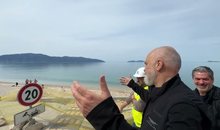
 Flash News
Flash News
Document/ Benet Beci was taken into custody by SPAK before the elections
Montenegrin Army to train Ukrainian soldiers
The Serbian Federation reveals the stadium where it will host Albania on October 11!
The 40-year-old survived the air disaster: When I opened my eyes, I saw bodies everywhere, then...
State Matura 2025, foreign language exam grades published
Rama's idea of a "Bektashi State" is criticized as "narcissistic and dangerous"
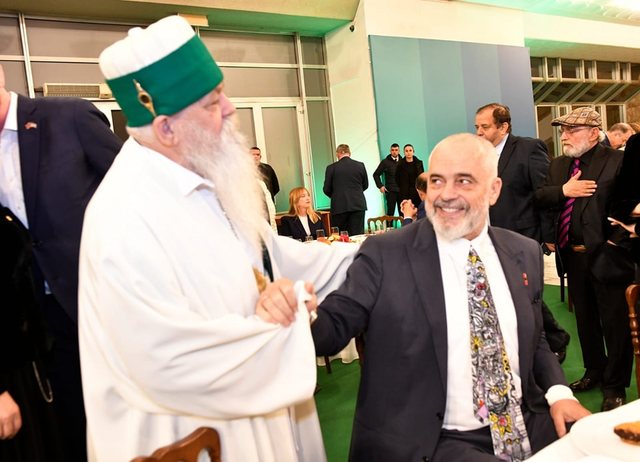
Prime Minister Edi Rama's proposal for the creation within Albania of a sovereign state of the "Bektashi Order" is criticized as a strange, dangerous idea driven by the need to attract the attention of international media from analysts and researchers.
In his speech before the United Nations General Assembly in New York on Sunday, Prime Minister Edi Rama declared that Albania was ready to transform the World Bektashi Order into "a sovereign state within the Albanian capital", similar to the Vatican.
This previously unheard of idea was previously warned by Rama in an interview with the New York Times, according to which the purpose of this microstate was to promote a tolerant Islam.
The Bektashi patriarch, Haxhi Dede Edmond Brahimaj, applauded Rama's idea and said in a statement that the 'new state' was not about politics, but about spiritual leadership.
"The Bektashi order, known for its message of peace, tolerance and religious harmony, will gain Vatican-like sovereignty, allowing it to autonomously govern religious and administrative affairs," the statement released to the media said.
However, Rama's idea of a "sovereign Bektashi state" was met with frowns and is regarded by political analysts as strange and absurd.
"This strange idea for such a country that has to do with the territorial integrity of the country, that requires changes to the Constitution, this man does not consult with any Albanian, but declares it all over the world, ignoring not only us who consider us enemies , but also those Albanians who support him or are part of his government," publicist Fatos Lubonja told BIRN.
"This shows the level of growth of authoritarianism, that is, the decline of democracy in Albania," he added.
The Bektashi World Order is a tariqat of Islam, which established its center in Albania in the years between the two World Wars. Among the Albanians, they have always had an important presence, being considered the fourth religion in terms of size and an important part of state formation and the National Renaissance. According to the last census, about 115,000 people or 4.8 percent of the population declare themselves as Bektashi in Albania.
Afrim Krasniqi, director of the Institute for Political Studies, also considers the declaration of a sovereign Bektashi state as "a dangerous idea".
"A typical case to show how Albania continues to be run as a personal state and that political decision-making is completely non-institutional," said Krasniqi.
Beyond the statements from New York, the project is covered by legal and constitutional ambiguity, while the Albanian government has not made public any additional data.
The proposal for the moment has been detailed in only a few lines by the Bektashian Grandmother in a statement to the media. They clarify that they will be a "spiritual entity, citizenship in the new sovereign state of the Bektashi Order will be limited only to members of the clergy and individuals engaged in state administration. The government of the state will be led by the spiritual leadership of the Order, with the Grandfather (Dedebaba) and a council that will oversee the religious and administrative functions".
But the researcher Enis Sulstarova says that the plan cannot be treated so simply and that the idea itself is anti-national.
"It's something very strange, very absurd and deeply anti-national," says Sulstarova, while clarifying that micro-states are actually remnants of feudalism in Europe and cannot be creations of modern states.
"The modern state has popular sovereignty, theoretically it originates from a certain people, therefore the micro-state (without territory and without people) contradicts it," he added.
Sulstarova also explains that theses for a political organization along religious lines have always been rejected in Albania and this idea is a dangerous precedent "because it contradicts the Albanian national line from the Renaissance to our time".
Contrary to Rama's claim, Sulstarova says that this idea goes against what is promoted as religious harmony in the country, as it creates a divisive precedent.
Provocative ideas that attract attention are a feature of Rama's 11-year rule, and this of the Bektash sovereign state is no exception. According to analysts, Rama's statement stems more from his need for attention than from a studied or thought-out project.
"We are dealing with an attempt by the prime minister to draw attention from internal developments and to become attractive in the international media," said Krasniqi, who added that the latter seems like a slander of the moment.
The same opinion is shared by Fatos Lubonja, who estimates that this could be a media operation to divert attention from a series of articles in the international media, which see Albania governed by Rama as a "narcoshtet".
"Narcissistic smokescreen to stay in the limelight or distract from accusations in the world media of building a narco-state," he said.
The researcher Sulstarova also commented that Prime Minister Rama sees Albania as an exotic or touristic country, where foreigners can come and visit a Bektashi microstate.
"We want the politicians to create a normal state, not a state of wonders," said Sulstarova, worried that politics is corrupting religion by diverting it from its main purpose./BIRN
Latest news

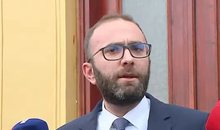

Document/ Benet Beci was taken into custody by SPAK before the elections
2025-06-12 22:52:12








Montenegrin Army to train Ukrainian soldiers
2025-06-12 20:13:45
Italia në alarm, zgjebja po përhapet me shpejtësi
2025-06-12 20:11:39

Dua Lipa gets engaged: I'm happier than ever with Callum Turner
2025-06-12 19:44:29

Around 29,000 Albanians left last year, INSTAT estimates
2025-06-12 19:31:23

Rama "sacrifices" the socialists to make fun of Soros
2025-06-12 19:13:33
Montenegrin Army to participate in EU military assistance mission to Ukraine
2025-06-12 18:57:36



Body acne, six ways to prevent it
2025-06-12 18:05:03

State Matura 2025, foreign language exam grades published
2025-06-12 17:31:26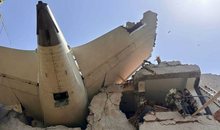
Video/ This is the moment the Air India plane crashes with 242 people on board
2025-06-12 17:27:59
GJKKO postpones the hearing for 'Golden Bullet' to June 17
2025-06-12 17:23:50
The decline of democracy in Albania, the alarm from the European Parliament
2025-06-12 17:03:38

What does the murder of Superman Veliaj reveal about May 11?
2025-06-12 16:40:53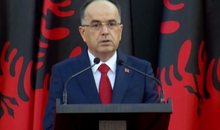


UN report: Europe is surrounded by a belt of countries in crisis
2025-06-12 16:08:47
Sula: The scandal with the state matura, a failure of the education system
2025-06-12 16:08:42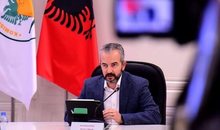

'I have no affection', Erion Isai separates from his wife
2025-06-12 15:40:38


On the 84th anniversary, the SP is ever bigger, Albania is ever smaller
2025-06-12 15:07:25
A "lazy day" a week can reduce stress and stroke risk
2025-06-12 14:56:30

Tragic in Fier, 28-year-old found dead in the yard of his apartment
2025-06-12 14:39:15
How does temperature affect body composition?
2025-06-12 14:33:18
Throwing company waste into the Buna River, 31-year-old employee prosecuted
2025-06-12 14:30:11
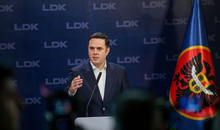
LDK's Abdixhiku unveils 15-point agenda for a unity government
2025-06-12 14:14:24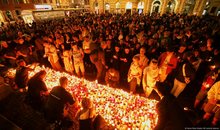
From shootings to stabbings/The history of deadly school attacks
2025-06-12 14:11:51
3 Albanians, part of criminal organizations, extradited to Italy
2025-06-12 13:59:15
A 26-year-old man is arrested for the armed conflict in Ali Dem
2025-06-12 13:40:31
Report/ Albania worsens in gender equality index
2025-06-12 13:40:14

Quarrel between neighbors in Patos, 35-year-old injured with screwdriver
2025-06-12 13:07:05

Accident on the Krahes-Memaliaj axis, a 65-year-old man is injured
2025-06-12 12:45:49


Demand a recount of votes in Tirana, the Court dismisses Alimehmet's case
2025-06-12 12:22:08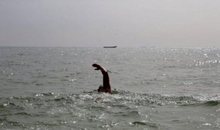
Suffering cardiac arrest, vacationer dies on Qerret beach
2025-06-12 12:05:48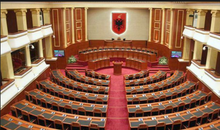
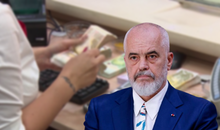
The market is "demanding" a minimum wage increase
2025-06-12 11:52:37
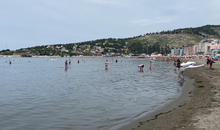
Alarm on the coast/ Elderly woman from Kosovo risks drowning!
2025-06-12 11:25:51
The hearing for "Golden Bullet" is postponed due to the lack of lawyers.
2025-06-12 11:06:27
The Special Court schedules the hearing for the “Partizani” case
2025-06-12 11:00:42
"We work to steal"/ Berisha releases Rama's video: The first time he is honest!
2025-06-12 10:52:11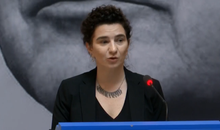


US limits non-essential staff at embassy in Iraq after rising tensions with Iran
2025-06-12 10:19:44

Hero in Greece/ Albanian immigrant saves two children from drowning in river
2025-06-12 09:52:46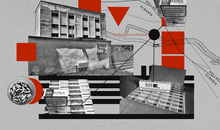
Albanian Customs Officials Crack Down on Cigarette Smuggling Business
2025-06-12 09:37:17

26 years of freedom! Kosovo marks Liberation Day today
2025-06-12 09:14:19
Clear skies across the country, weather forecast for today
2025-06-12 09:03:08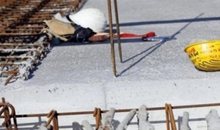
The level of salaries in construction and tourism remains below average
2025-06-12 08:49:54


Murder in Xibar i Klos/ Hazbi Velsula, the victim's cousin, in custody
2025-06-12 08:23:45
Morning Post/ In 2 lines: What mattered yesterday in Albania
2025-06-12 08:09:51
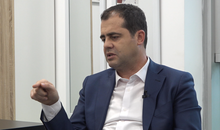
Bylykbashi: The EPP Assembly adopted the strongest resolution in this forum
2025-06-11 22:46:15
A person is found dead in Klos, suspected of being murdered
2025-06-11 22:33:38
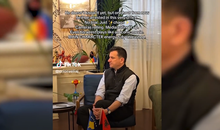

Rape the cleaning worker in Athens, the Greek police declare the Albanian wanted
2025-06-11 21:30:13
Disappointment with Latvia, Elseid Hysaj reacts after disappointing transfer
2025-06-11 21:15:08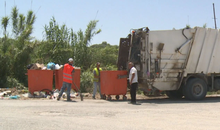

EU: New package of sanctions against Russia focuses on energy and finance
2025-06-11 20:51:17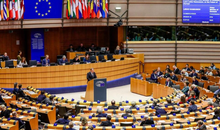

Scandal in Lezhë/ The apartment is covered by sewage
2025-06-11 20:37:59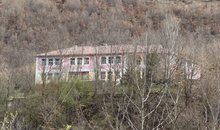
Rural schools left behind in the use of digital tools
2025-06-11 20:09:51
Kosovo bans import of sheep and goats from Albania
2025-06-11 20:01:17
Shot in the head, former Albanian policeman dies after 3 days
2025-06-11 19:41:08


Weather-shaping factors: How cloud-dwelling microbes affect our lives
2025-06-11 19:01:22

